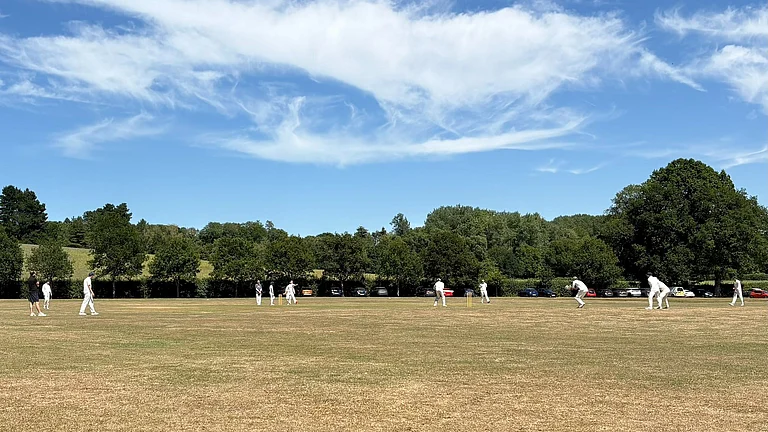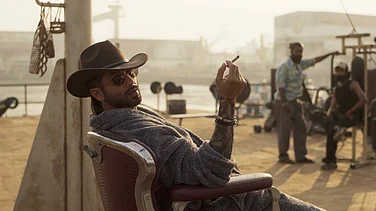Ashim Ahluwalia’s latest Netflix show ‘Class’ has been garnering a mixed response from the audiences. While people have loved the storyline, many have even been calling the set-up of the school and its students a faraway exaggeration of the schooling system. Some even have called it a ‘Karan Johar Style School’. Despite the shortcomings, the show has received accolades for holding on to audiences till the very end.
Talking to Prateek Sur, the ‘Class’ director Ashim Ahluwalia speaks up about the response to the show, the criticism around the hi-fi school, adapting from a Spanish show, the good and bad of OTT, and lots more. Excerpts:
‘Class’ has been garnering some great reviews. Where did the idea for the show generate from?
I liked the idea of making something about teenagers and I toyed with that as a feature film for a while. It was just an accident that one day I was offered the Spanish series ‘Elite’ for an adaptation. I had never done a series or even thought about it. The original show is totally different from the films I make, but there was something really engaging about the characters, and the class conflict felt very relevant to India.
The kind of school that you’ve shown in ‘Class’ seems to be very futuristic or rather too posh. Do you think in today’s time such high society schools do exist? Or is it just a figment of imagination?
Not at all, this is very similar to real international and luxury schools all over India. I had originally liked the architecture of the British School in Delhi, you can look that up – it’s very slick and modern – but, of course, due to the material in the show, we didn’t want to link it with an actual school as that would have been problematic. We have schools like this in Bombay as well, such as the ones in BKC.

We have seen similar high society school stories in the recent past in ‘Guilty’ or ‘Student Of The Year’, etc. Even on OTT, there are shows which have such school-driven stories. How does ‘Class’ differentiate itself from the rest of such shows? What’s different in it which isn’t there in any of the others?
I think ‘Class’ is drastically different in terms of the tone, the filmmaking approach, the soundtrack, the casting choices, the darker atmosphere, and the intensity. It also brings in quite of a lot of our social reality, the conflicts a lot of the characters face – either class, caste, religion, or homophobia. I think that makes it different from the approach in something like ‘Student Of The Year’. I think there is space for all kinds of different stuff, though, everything doesn’t have to be similar.
As you’ve adapted the show from the Spanish show ‘Elite’, what sort of difficulties did you face in order to change that storyline to make it more conversant with an Indian audience? Did you have to make considerable changes?
I adapted the show completely through an Indian lens. Here other than class there is also caste – so that makes the conflicts more complex. The way families work, and their involvement in children’s lives is very different from Spain so the parents here are a much larger part of this show than in the original. There is also corruption, in the original, the investigation remains in flashback, but here the cops are actually part of the crime story, in the sense that they are on the payroll of one of the wealthy parents. There are a lot of social and cultural differences.
What are the challenges of adapting an already existing piece of work in comparison to creating something of your own right from the scratch?
With an adaptation, you have a blueprint to start so you can decide how much or little to deviate from the plot. And then you instead focus on how you tell the story, your vision for this tale, not so much what it’s about. Whereas in an original you spend more time working out the story beats, and probably have less headspace for thinking about the secondary layers as much.
How much help has Netflix provided in terms of the production of the show? Were they interfering producers? Or did they leave it all to you?
No, I was expecting them to be a lot more controlling as a platform as I can be very difficult about how I want to make things, and I don’t work in a conventional way, but they gave me a lot of freedom. I think that the outcome is really a result of that. Honestly, I think that is the best kind of producing – to trust the people who you work with, otherwise, why work with them?
As a filmmaker what has been the biggest benefit or say a point of relief that you’ve noticed after OTT platforms became such a big thing in India? What’s the upside of this OTT boom for a filmmaker?
I come from independent films and those are my roots. I get into each detail and need a lot of control and space to make my work. Because of the scale of a series like this, it can be hard when you want to maintain a certain form of filmmaking. As I mentioned, Netflix was patient with my working style and was supportive of the vision, which was unexpected because I don’t work like an industry director at all. In a series, you can’t do everything yourself, and so I brought in two episode directors – Kabir Mehta and Gul Dharmani – who followed specific strands of the storyline and this allowed me the space to oversee the whole world of the show. We were all aligned on how we wanted to make this and there was no compromise at all. This would only be possible on an OTT platform for many reasons. One is that the audience is very targeted, you don’t have to deal with a film going out to thousands of cinemas together on a Friday and being given a week to “prove itself”. You can afford to take more risks, do things in a way that hasn’t been done before, and address difficult subjects. This is not easy in Indian mainstream filmmaking.
Is there any downside to this OTT boom?
The downside can be that there definitely is an algorithm that pushes for predictability and safe content. OTT does not mean edgy filmmaking for the most part. And yet, if you compare streaming to the old Bollywood distribution system, where you’re pretty much forced to cast stars, stick to formulas and open on 2000 screens at one go so you can only make the lowest-common fare – streaming feels radical, especially in India. Nobody is going to give you opportunities to do something new, you have to make them for yourself. Streaming just offers more opportunities to do interesting things if you are ready to fight for your vision.

From ‘John & Jane’ times till now, what sort of changes do you in the Indian film industry?
I feel like everything has changed since I made that film. When I made ‘John & Jane’ there were simply no options for filmmakers like me in India, I had to get finance abroad. There were no audiences accessible, so you have to go the film festival route. No journalists would review your work, you would get no interest, and no support at all from the industry. It’s just that the now that old Bollywood industry itself has mostly collapsed, allowing directors such as myself to have a space that I did not have even when ‘Miss Lovely’ came out in 2012. Certain actors might ask to work with me now just because they like the style of filmmaking or want to do something different. The older actors are mostly out, and a new generation of stars, more exposed to global cinema have come into the game. It’s not like earlier when you would have to narrate your film to 20 stars before anyone gave you money. The best thing is that I also think the audience is a lot more exposed now, they are open to the kind of work I might want to make. I think ‘Class’ is a good example of that.
What has been your biggest regret over these many years? Anything that you feel that you have picked up or anything you feel you should have let go of?
I don’t have regrets, only gratitude that I am able to do what I love. I do feel like all my projects are like my children, you can’t compare them.
What next can we see coming from your end?
Right now, I am committed to a few film projects, one of which is an international film, but it’s still in the early stages.



























